PERFORMANCE: The Actors' Roundtable: "Consensus"
 Paden Fallis |
Paden Fallis |  November 15, 2012
November 15, 2012
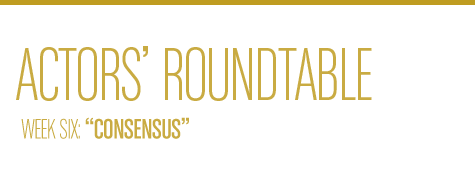 |
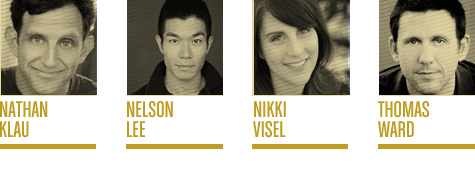 |
|
For 12 weeks, Paden Fallis posed one question each week to a group of professional working actors from a variety of backgrounds in an effort to dig a bit deeper into their artistic working processes. In this second series of 12, an expanded group of actors explores where their art fits into the larger cultural context. ACTOR’S ROUNDTABLE: CONSENSUSI saw an interview with a world-famous comic, and he said that if he tells the same joke in four different cities and gets a good response in each city, then he knows he has a good joke. I, on the other hand, think that consensus is a mortal enemy of art. Me or the world famous comic? Your thoughts, please. - Paden Fallis, Performing Arts Contributing Editor |
|
|
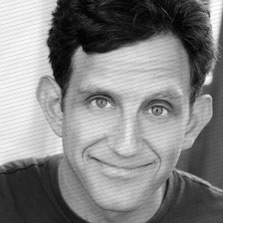
NATHAN KLAUThis is a topic near and dear to my heart, by virtue of the fact that I am a recovering pop-culture junkie whose tastes have often gravitated toward the mainstream in the artistic realm. I can proudly proclaim that, after years of feeling guilty or stupid or less intelligent and discerning than those who appreciate “Williamsburg” art or music or comedy or theater (do I even have to explain myself here?), that my likes are just as valid as those of the guy in the fedora next to me on the L train. I’ll never forget an ex-roommate/friend of mine who, when I was in full-throttle obsession mode with the musical Rent on Broadway, accused me of liking the show “because everyone else did.” I still see red when I think about this encounter and it emboldens me to own my tastes. It goes without saying that art is purely subjective, that it can be many things to many people. And to fault an artistic work (or a comedian’s joke for that matter) BECAUSE lots of people like it is arrogant and wrong. I hear a lot of people liked a band called The Beatles. Does that make them uncool? |
|
|
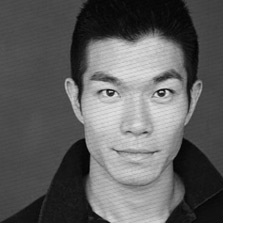
NELSON LEEThere is something to be said for working on a structure that allows you to deliver consistent results on stage, but then again I feel that patterns, not just consensus, are an enemy to art. Sometimes when we lock into a pattern of delivering a line or a gesture that garners the “best” response, we forget to keep looking for the new moments, and cruise right through new stuff that’s cooking. For me, there is a sense of relief when I find that moments land correctly every night, but then again, when they don’t, that doesn’t necessarily mean I wasn’t doing my job, or that the “joke” wasn’t as sharp. Having just done the same play in two very different cities back to back, there were moments in the first production that you could set your watch to, but then in the next one—nothing—not once. Was the joke bad, or was it the art? Neither, really. Live performance can only truly be “live” if there is a constant ebb and flow between material, performer, and audience. If one is locked away from the others during performance, then that component ceases to be in the moment. It becomes art on a wall, but not on a stage. |
|
|
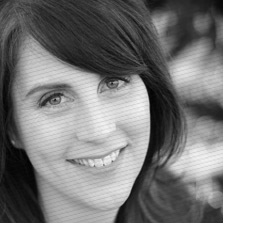
NIKKI VISELThe famous comic is minimizing his risk, maximizing his return on investment, and probably making me laugh very hard. I appreciate that. So it sounds like a great idea, except that consensus minimizes risk at the expense of…what? Truth? Insight? Creativity? Perhaps consensus breeds entertainment. So as an entertainer, the comic is onto something. Consensus has given us the Hollywood blockbuster and Top-40 radio; clearly it accomplishes something. In her 2011 essay for the NEA, Maria Popova wrote:
The role of art in society is not to please the largest number of people possible (that doesn’t mean that art can’t be popular) but to create perspectives from which to see, soundscapes that help us listen, and new, common experiences by which to relate. Consensus requires compromise and concession. During the creation of artistic work, consensus’ power lies after the art, not in the middle of it. |
|
|
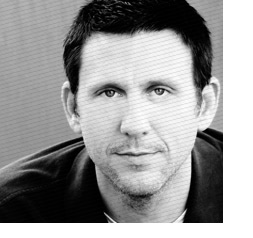
THOMAS WARDThe goals of the comedian and the actor/writer are different. The comedian wants every member of every audience to laugh, plain and simple. If they’re a good comic, they do this while staying true to themselves/their voice/their sense of truth/whatever you want to call it. If they’re a bad comic (as I was for two years) they end up telling hack jokes (as I did for two years), sacrificing their soul to please the herd. When I write jokes into scripts, I want the whole audience to laugh. I don’t want some of the audience to not think my joke is funny. I’d like it if the whole audience liked the play, and I wouldn’t be suspicious if they did, if I’ve let the play be in charge. I think I understand the idea of consensus being an enemy to art, but I don’t allow myself to dwell on it too much because that sentiment can be used far too easily to justify shitty work. “They just don’t get it.” “Not their cup ‘o tea.” “They’re not ready for the kind of truth I’m bringing.” Hogwash. For me, what’s important isn’t so much the audience, but my motivation for every choice I make, be it as an actor or a writer. I’ve occasionally made the mistake of crossing that invisible line as an actor, from being in the moment with my scene partner to focusing on the reaction from the audience and compromising the truth of the moment in the process. Nine times out of ten, the audience doesn’t fall for it. And even if they do, I know I crossed the line. I’ve tried to write plays with a specific audience in mind, and ten times out of ten, they’ve sucked hard. Just ask yourself why you’re doing what you’re doing. What or whom are you serving? I bet Carrot Top sleeps like a baby because he’s doing exactly what he thinks is funny and the audience does too. He’s not selling out. The dude who’s trying replicate Carrot Top, or even the dude who’s coasting on trashing Carrot Top… he’s the sellout. |
|
|
ABOUT THE ARTISTS |
|
Nathan Klau’s touring credits include Jersey Boys, The Lion King, Forever Plaid, and Anything Goes. Regionally, he has worked at Goodspeed Opera House, Arkansas Rep, and Theater-by-the-Sea. A native of West Simsbury, CT, Nathan graduated from Yale University in 1994 with a degree in History and Theater. He hopes to use it someday. Nelson Lee left his native Canada for New York to pursue training at the American Academy of Dramatic Arts. Since then, he has appeared in various television series, including Blade: The Series, Virtuality, Oz, Covert Affairs, Hawaii Five-O, and the Law & Order franchise. Recently, he took to the stage for the world premiere of Zayd Dorn’s play, Outside People, at the Vineyard Theater in New York, and the American Conservatory Theater (A.C.T.) production of Maple and Vine in San Francisco. He currently resides in Los Angeles. Nikki Visel is an actor living just steps from the Space Needle in Seattle. She calls Taproot Theatre Co. her “home” theatre but is about to begin her second season touring with Seattle Shakespeare Company and has worked throughout the city. Her first full-length feature film, Nothing Against Life, will be released in 2013. Thomas Ward is an actor and playwright based in Minneapolis. He appeared in the Off-Broadway premiere of Craig Wright’s The Unseen at the Cherry Lane Theatre. He has performed regionally with Actors Theatre of Louisville, Alabama Shakespeare Festival, Georgia Shakespeare, WaterTower Theatre (Dallas), and the ZACH Scott Theatre (Austin), among others. He was previously profiled by stated. |
| View all of our Roundtable discussions… |












Reader Comments